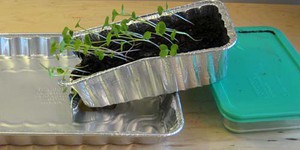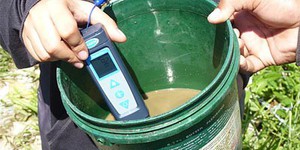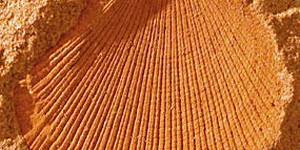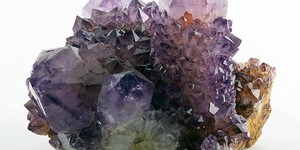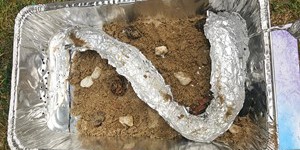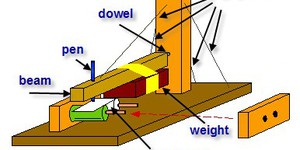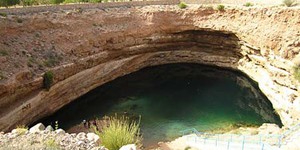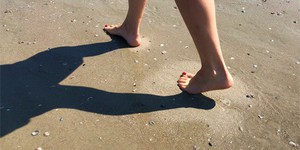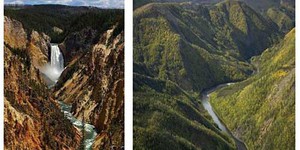Geology Science Projects (43 results)
Geologists study the Earth, trying to understand the forces that gradually shape and change the landscape and ocean floor, as well as forces that make themselves felt more suddenly, like earthquakes and volcanoes. The information geologist discover helps in many ways, from keeping populations safe from disasters like landslides to uncovering important ore deposits like titanium used for surgical equipment.
|
Select a resource
Sort by
|
Soil erosion can cost the world billions of dollars every year by washing pollutants into our streams and rivers and by causing the loss of farmland. What can you do about this problem? Help save the world (and some money!) with nothing more than a few plants!
Read more
Featured
Have you heard that garlic powder is supposed to inhibit the growth of bacteria? Which do you think would make a better disinfectant: a solution of garlic powder or a solution of bleach? This project shows you a straightforward way to compare the effectiveness of different disinfectants (or other antimicrobial agents), by measuring zones of inhibition on a culture plate.
Read more
Did you know that soils can be alkaline, neutral, or acidic? Most plants grow best in soil near neutral pH, but some plants prefer slightly acidic and others slightly alkaline soil. What is the pH of the soil in your garden? What happens to the pH of water that comes in contact with soil? In this science project you will get to find out.
Read more
New
Artificial intelligence (AI) programs can now generate photorealistic pictures of people who do not exist in the real world. How can you tell if a picture is of a real person or a fake, AI-generated person? What features of the picture do people use to decide whether the face is real or AI-generated? In this project, you will explore these questions as you ask volunteers to look at both real and AI-generated pictures of human faces.
Read more
The papier-mâché volcano is a real classic, but there are many other ways to make an even more exciting and interesting science project focused on volcanoes!
To get started on your own volcano-based science project, you will want to first have an understanding of how volcanoes form. This is related to tectonic plates. The entire outer shell of the Earth, known as the lithosphere, is made up of tectonic plates that are constantly moving. There are seven or eight large tectonic…
Read more
Have you ever stood close to a fossilized T. rex skull and counted its razor-sharp teeth? Or, have you seen a fossilized stegosaurus skeleton and thought about how it defended itself with tail spikes and armored plates? A trip to a natural history museum lets you imagine what dinosaurs looked like and wonder what life with them on Earth was like. Fossils give us information about animals and plants that lived long ago. Certain places around the world contain more fossils than others. Why?…
Read more
Have you ever heard the expression, "You can't judge a book by its cover"? What do you think that means? That a book with a very plain cover might have a very exciting and interesting story inside? Well, in this geology science project, you'll see if the same expression holds true for a rock, but not just any old rock, a special type of rock called a geode, which looks rather plain and ordinary on the outside, but inside can hold crystals and beautiful colors! You'll discover if the texture or…
Read more
New
Have you ever noticed that on a hot day, it's more comfortable to wear a light-colored shirt than a dark one? Or that it's cooler in a park than walking down a street? This happens because different surfaces absorb and reflect heat in different ways. Urban heat islands are parts of cities where man-made surfaces like pavement and buildings replace natural surfaces like grass and trees. In this project, you will use temperature and satellite data to see if certain areas in a city have higher…
Read more
Have you ever seen a river from far above? It is fascinating how they carve their way through the landscape. But what makes the water in a river flow? Where does a river start and end? And why is it that rivers usually have lots of turns or bends and almost never flow straight? In this science project, you will make river models using aluminum foil and water to explore how water flow inside a river changes based on its shape.
Read more
If you live in an area where earthquakes happen, you might be especially interested in this science project. You will learn how to build your own seismograph and how to use it to detect ground motion.
Read more
If you have ever prepared a cup of coffee or tea with sugar, you have probably seen that the grains of sugar quickly dissolve and completely disappear in hot water. But sugar is not the only type of solid that can readily dissolve in a liquid. In fact, there are some types of rocks that can be dissolved by common liquids. It might be hard to imagine large, hard rocks being eaten away by some ordinary fluids, right? But it actually happens all the time! In this geology science project, you will…
Read more
Did you ever notice the cool patterns around your footprints when you take a walk in the wet sand at the beach? The pressure of your feet has effects far outside your footprints. Here's a project that uses a simple experimental apparatus to investigate how the volume of wet sand changes under pressure.
Read more
Have you ever had fun playing with sand and water, observing how little rivers you create carve their way down to the lowest point of the sandbox, backyard or beach? Some meander, others braid, and some carve a path straight down.
Hyrdologists (or scientists who study water) do very much the same thing! Only they set up the model in a particular way, so observing their mini-rivers helps them answer questions about how water flow affects the environment. In this geology science project, you…
Read more
|
Explore Our Science Videos
Do Veritasium's Helicopter Rope Experiment at Home
Video: Winding Coil
Program Your Own COVID-19 Simulator with Scratch


